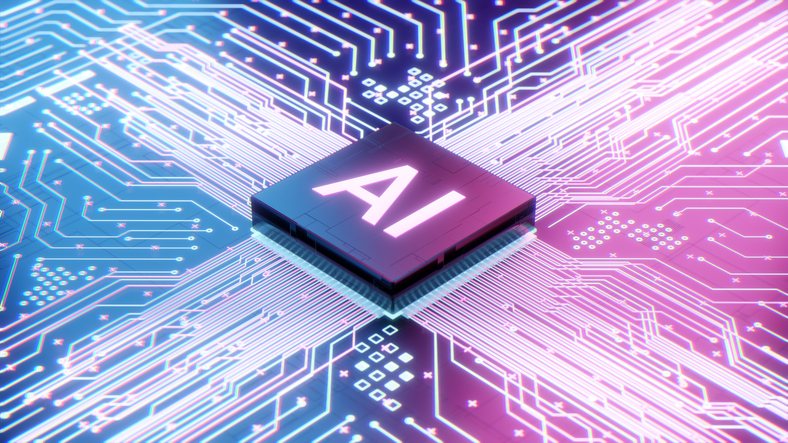Design Issues Resolved, But Not Without Consequences
Nvidia, the titan of graphics processing units and artificial intelligence, has successfully addressed a significant design flaw affecting its Blackwell AI chips, as confirmed by CEO Jensen Huang on Wednesday. This resolution comes after close collaboration with Taiwan Semiconductor Manufacturing Company (TSMC), Nvidia's trusted manufacturing partner. Despite this promising development, Nvidia's stock saw a downturn of approximately 2% during early trading hours, highlighting market concerns surrounding the implications of these delays.
Initially introduced in March with plans for shipment in the second quarter, the Blackwell chips have faced production setbacks that could impact major clients such as Meta Platforms, Google, and Microsoft. Huang candidly acknowledged the issue, stating, "We had a design flaw in Blackwell. It was functional, but the design flaw caused the yield to be low. It was 100% Nvidia's fault." While there were reports of strained relations between Nvidia and TSMC due to these delays, Huang dismissed such claims as "fake news," underscoring the complexity of the Blackwell project.
The Complexity of Blackwell
The Blackwell AI chips represent a monumental engineering feat, integrating two silicon squares into a single component that dramatically boosts performance. Designed to be 30 times faster in tasks such as processing responses from chatbots, these chips set new industry standards for speed and efficiency. At a recent Goldman Sachs conference, Huang announced that these chips are now expected to ship in the fourth quarter, a notable delay from the original timeline.
During his visit to Denmark, Huang also unveiled a new supercomputer named Gefion, featuring 1,528 graphic processing units (GPUs). This supercomputer was developed in collaboration with the Novo Nordisk Foundation and Denmark's Export and Investment Fund. The launch of Gefion illustrates Nvidia's ongoing commitment to innovation, even amid the challenges posed by Blackwell's production delays.
Related: Hyper-Targeting: What Does AI-Driven Automation Mean for the Next Evolution of Google Ads?
What Makes Blackwell a Game Changer
The Blackwell chip is not just another entry in Nvidia's extensive portfolio; it is a critical player in the future of artificial intelligence. Its unique architecture allows for advanced computation and processing capabilities that are essential for powering next-generation AI applications. Designed for high-performance computing tasks, the Blackwell chip can handle vast amounts of data with unprecedented speed, making it suitable for a variety of applications, from real-time data analytics to AI-driven simulations.
Key Uses of Blackwell Chips:
- Artificial Intelligence: The Blackwell chips are particularly well-suited for AI tasks that require rapid processing and decision-making capabilities. They can significantly enhance machine learning models, making them faster and more efficient.
- Natural Language Processing: The ability of Blackwell chips to process chatbot responses 30 times faster than previous models opens new avenues for real-time customer service applications, enabling companies to improve user interactions significantly.
- Data Centers: With the growing demand for cloud computing and AI services, Blackwell chips can optimize workloads in data centers, making them more efficient in managing resources and improving overall performance.
- Gaming: Blackwell is expected to redefine gaming experiences by providing graphics that are more realistic and immersive, pushing the boundaries of what gamers can expect from their systems.
Related: How AI Contract Review Tools Improve Contract Compliance
The Key to the Next Stage of AI
As the world increasingly leans into AI, the Blackwell chip is poised to play a pivotal role in this technological evolution. Its architecture is tailored for the complexities of AI algorithms, making it essential for developers and companies looking to push the boundaries of what AI can achieve. From autonomous vehicles that require rapid decision-making to smart cities that analyze and process data in real-time, the potential applications of Blackwell are vast.
In the realm of AI, speed and efficiency are crucial. The Blackwell chip promises to provide these characteristics, ensuring that Nvidia remains at the forefront of the AI revolution. With companies like Meta, Google, and Microsoft eagerly anticipating the arrival of these chips, Nvidia's ability to deliver on the Blackwell project could solidify its reputation as the leader in AI technology.
As Nvidia navigates these turbulent waters, the tech giant’s ability to deliver on the Blackwell project will be closely watched by investors and clients alike. The outcome could shape the future of AI technologies and impact Nvidia’s standing in the fiercely competitive semiconductor market.














